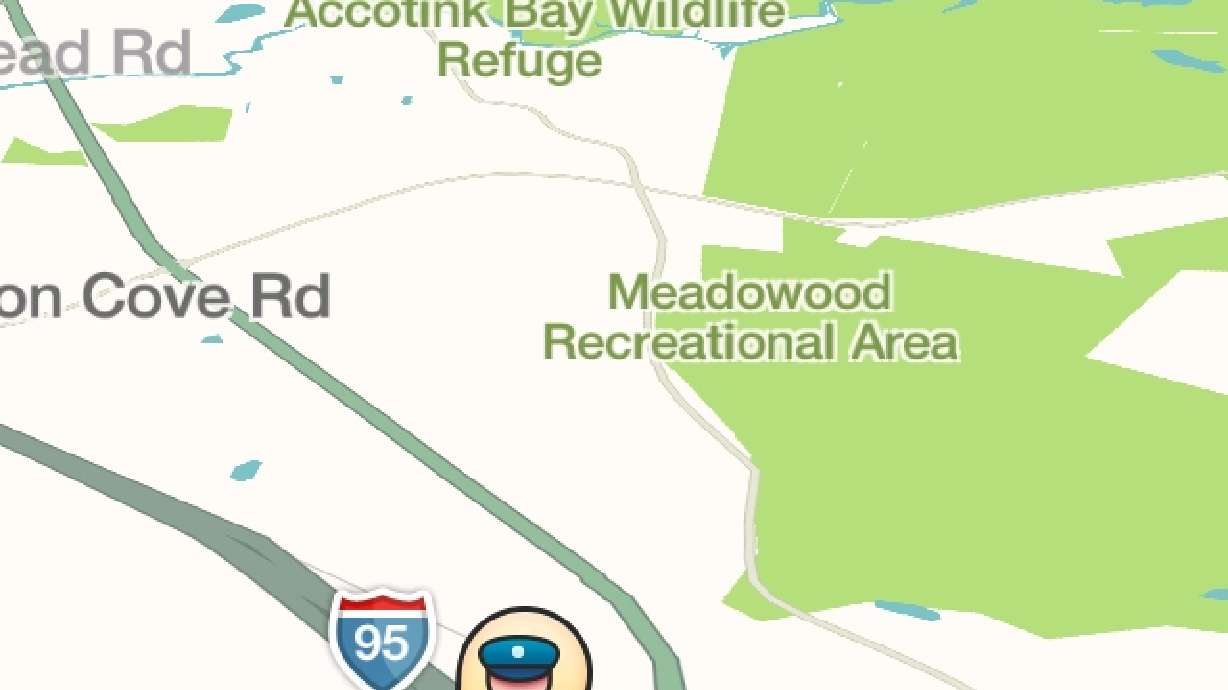Estimated read time: 3-4 minutes
This archived news story is available only for your personal, non-commercial use. Information in the story may be outdated or superseded by additional information. Reading or replaying the story in its archived form does not constitute a republication of the story.
WASHINGTON (AP) — Sheriffs said Wednesday that Google's popular Waze traffic app is making it harder to nab speeders, adding to earlier police complaints that a feature in the software that lets drivers warn others about nearby police activity is putting officers' lives at risk.
The National Sheriffs' Association had previously focused its campaign against Waze on police safety after the fatal shootings of two New York police officers in December. It broadened its campaign with a new statement criticizing Google's software as hampering the use of speed traps. The trade association said radar guns and other speed enforcement techniques have reduced highways deaths.
"This app will hamper those activities by locating law enforcement officers and puts the public at risk," the group said.
In the Waze app, which operates like a free GPS navigation tool, users can tag the locations of parked police vehicles, accidents, congestion, traffic cameras, potholes and more, so that other drivers using Waze are warned as they approach the same location.
In a twist, the newly expressed concern about speeding is also Google's own defense of its software.
"Most users tend to drive more carefully when they believe law enforcement is nearby," Waze spokeswoman Julie Mossler said.
Waze actually gained popularity in the last week since The Associated Press first disclosed law enforcement's concerns, climbing four positions to No. 8 on Apple's ranking of the top free mobile apps.
The Los Angeles Police Department chief and the executive director of the Fraternal Order of Police have echoed the sheriffs' concerns about police safety but have not said anything about it interfering with catching speeders. Sen. Charles Schumer, D-N.Y., who in 2011 raised issues with mobile apps that identified drunken driving checkpoints, is concerned about the Waze app police-reporting feature, according to his office.
Other major police trade groups had not yet formally joined the sheriffs' campaign. Some police departments near San Francisco, where Google is headquartered, did not share the same concerns.
Heather Randol, a spokeswoman for the San Jose Police Department, said the department does not have much information about the software's impact.
"However, part of our police model includes a highly visible police presence to reduce crime," Randol said.
Waze users mark locations of police vehicles — which are generally stopped in public spaces — on maps without much distinction other than "visible" or "hidden." Users driving nearby see a police icon, but it's not immediately clear whether police are there for a speed trap, a sobriety check or a lunch break.
Police objections to Waze add new complexity to the debate about technology and privacy. Some Waze supporters lashed out at outspoken sheriffs on social media, pointing to the irony of police concerns about being watched amid sensational disclosures about police and government surveillance of citizens.
Sheriff Mike Brown of Bedford County, Virginia, said states might pass laws to prevent people from revealing the locations of parked police cruisers. Privacy advocates, however, said First Amendment protections will stand in the way.
"Waze represents person-to person information in the public square," said Nuala O'Connor, head of the Center for Democracy and Technology, a Washington civil liberties group, who said she uses the software. "And that's long been a U.S. right under the Constitution."
There are no known connections between any violent attack on police and the Waze software. But Brown and others believe it is only a matter of time.
Holding Google liable for any future crime against law enforcement in which Waze was used to locate police would be a stretch, said Michael Krauss, a professor at George Mason University Law School in Virginia.
"Notifying people where police are, or where government officials happen to be located, has never been seen as negligent or as committing any kind of intentional tort," Krauss said. The fact that someone would misuse Waze in order to harm police is no more relevant than if someone misused a kitchen knife to stab someone, he said.
___
Follow Eileen Sullivan on Twitter at www.Twitter.com/esullivanap
Copyright © The Associated Press. All rights reserved. This material may not be published, broadcast, rewritten or redistributed.









